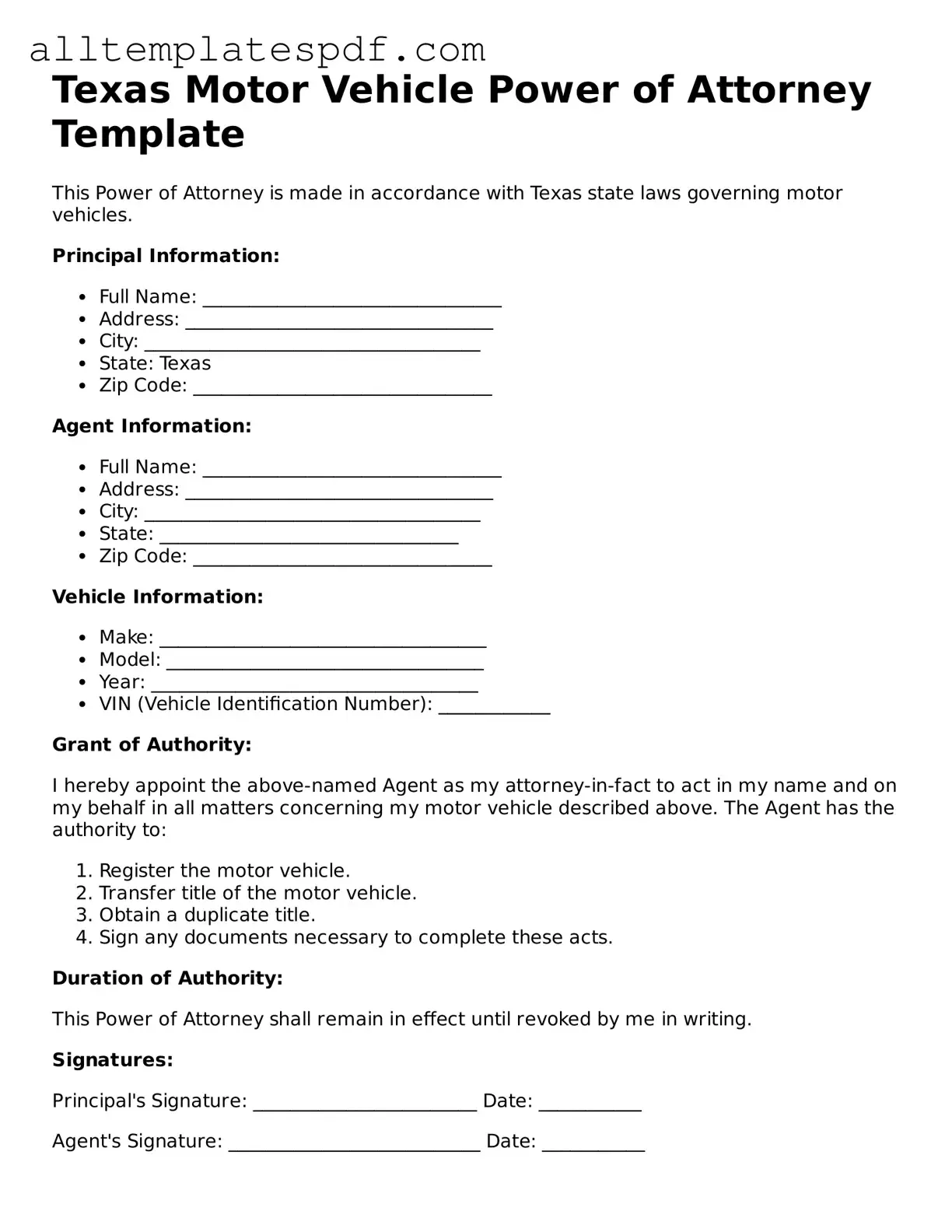Blank Motor Vehicle Power of Attorney Template for the State of Texas
The Texas Motor Vehicle Power of Attorney form is a legal document that allows an individual to designate another person to act on their behalf in matters related to motor vehicle transactions. This form is essential for those who may be unable to handle such matters personally, ensuring that their interests are represented effectively. To take the next step, consider filling out the form by clicking the button below.
Open Editor

Blank Motor Vehicle Power of Attorney Template for the State of Texas
Open Editor
Fast and easy form completion
Complete Motor Vehicle Power of Attorney digitally — fast and easy.
Open Editor
or
↓ Motor Vehicle Power of Attorney PDF Form
